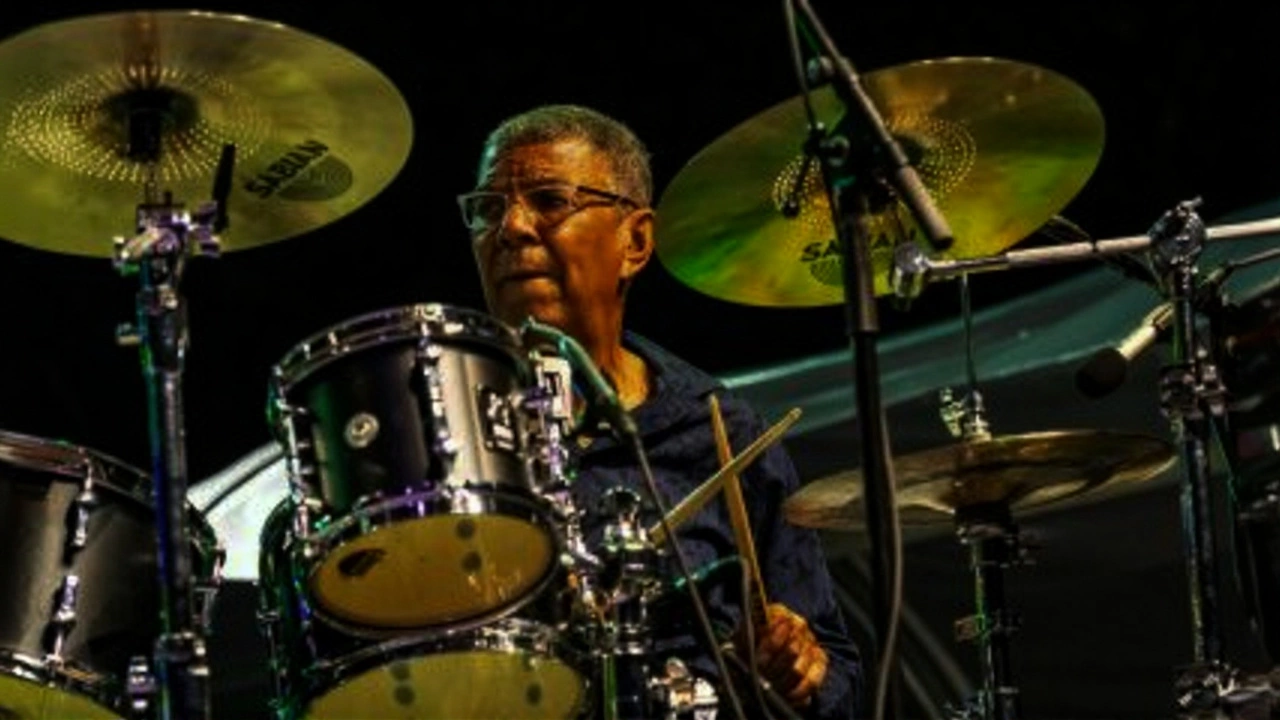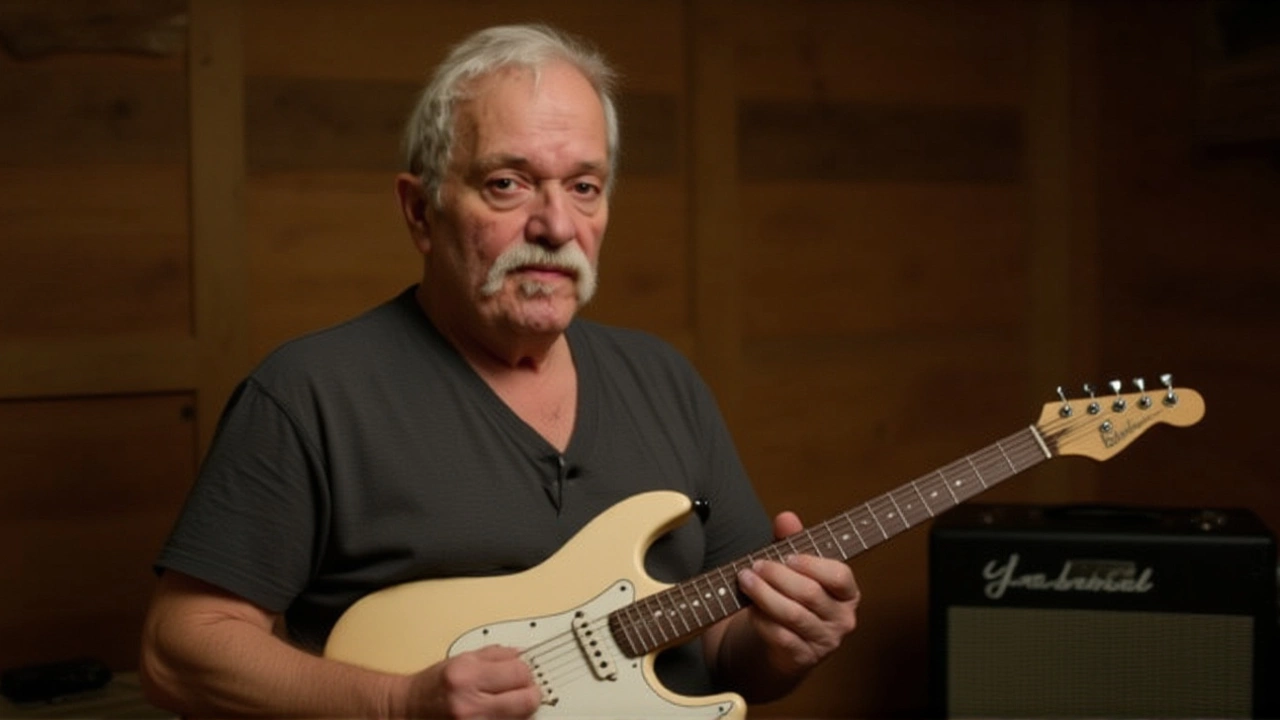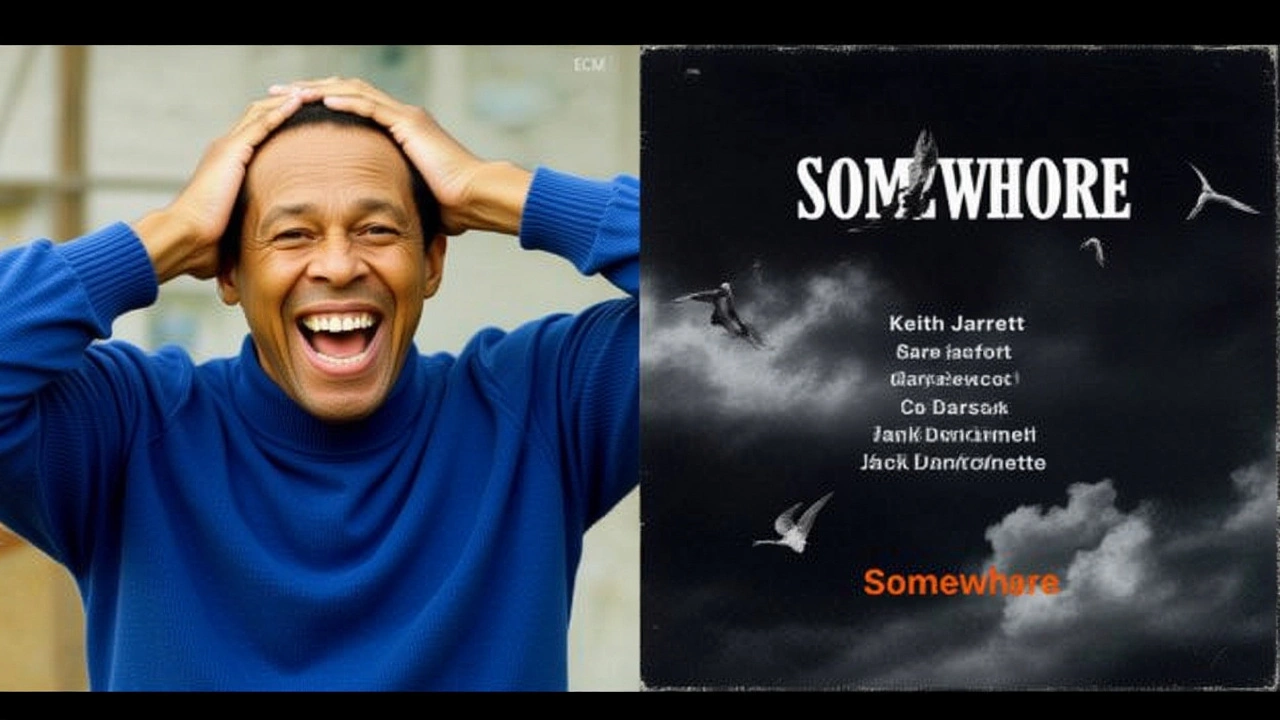When Matthew Shipp published his scathing review of 'Somewhere' in Talkhouse in 2013, he didn’t just critique an album — he ignited a firestorm over jazz’s sacred cows. Recorded live at the Lucerne Concert Hall on July 17, 2009, the album features Keith Jarrett alongside bassist Gary Peacock and drummer Jack DeJohnette, the trio whose quiet brilliance had long been hailed as the gold standard of modern jazz piano. But Shipp, a fearless voice in avant-garde jazz and creator of 'Piano Sutras', called it all a mirage.
"He Thought He Was a God"
"He never seemed to me to have sculpted a specific language system," Shipp wrote. "But instead seemed like someone who had a lot of piano chops and knew a lot of devices from classical music and had some jazz chops and could get a line going when needed." That wasn’t just a technical critique — it was a moral indictment. He accused Jarrett of believing his own myth: "It seems to me that Jarrett actually thought he was a god, and anything he played, whether it was vapid, watered-down impressionist devices or insipid vamps, was sacrosanct just because he was Keith Jarrett." The comparison to Cecil Taylor was especially cutting. Taylor, Shipp noted, used poetic language to describe his work — but he also built a rigorous, self-contained musical architecture to back it up. "Taylor knows that it’s a poetic metaphor — even if it’s true on some level — and he actually has to construct a real language to live up to the mythos," Shipp wrote. Jarrett, in his view, skipped the construction. He just showed up.A Dated Trio Concept
As for 'Somewhere' specifically? Shipp called it "a dated trio concept" that "does not even live up to its predecessors." He didn’t mince words: he’d rather listen to the early 1960s Bill Evans/Scott LaFaro/Paul Motian trio, or even Paul Bley’s 1963 performance on Sonny Meets Hawk! — a record Shipp called the "template for a lot of Jarrett’s straight-ahead work." "There is some nice music on the disc," he conceded. But the problem wasn’t the notes — it was the aura surrounding them. "I’m having a hard time separating the music from what I perceive as Jarrett pretense." It wasn’t the first time Shipp had challenged jazz orthodoxy. As Ethan Iverson of Do The M@TH pointed out, Shipp had previously taken aim at Wayne Shorter and Herbie Hancock. Iverson, who was simultaneously preparing to interview Jarrett for DownBeat’s September 2013 issue, described Shipp’s piece as a "takedown" that made his own critique of Joss Whedon’s music look "mild indeed."
The Language of Improvisation
Shipp’s critique wasn’t born of envy — it came from a deep engagement with musical language. In a 2013 interview with Jazz Weekly, he clarified his position: "YOUR SOLO ALBUMS ARE SOLO IMPROVISATIONS, BUT SO ARE KEITH JARRETT’S. HOW IS YOUR APPROACH SIMILAR OR DIFFERENT?" His answer? He’s building a system, not relying on charm. He cited Anthony Braxton’s "very codified language system" as an ideal. And he pointed to Taylor’s Air Above Mountains, Silent Tongues, and Indent — albums created around the same time Jarrett rose to fame — as evidence of what true innovation sounds like when it’s not just pretty sounds wrapped in reverence. Shipp’s own 'Piano Sutras' reflects that philosophy. Tracks like "Angelic Brain Cell" echo Taylor’s percussive density; "Surface to Curve" and "Space Bubble" unfold with the cinematic stillness of Ran Blake. But there’s no nostalgia. No reverence for tradition for tradition’s sake. Just a relentless search for new structures.Why This Matters Now
Jarrett, now in his late 70s, hasn’t performed publicly since 2018 due to health issues. His legacy is being cemented — and Shipp’s review, though nearly a decade old, remains one of the most unflinching examinations of how jazz elevates its icons. Is Jarrett a genius who transcended form? Or a gifted improviser whose myth outgrew his music? The debate didn’t end in 2013. It’s still alive in practice rooms, on YouTube comment threads, and in the way younger pianists approach solo performance. Shipp didn’t just attack Jarrett — he challenged every musician to ask: Are you building a language, or just borrowing a halo?
What’s Next?
The jazz world is watching as a new generation of pianists — from Angelica Sanchez to Irène Schweizer — embrace risk over reverence. Shipp’s critique, though harsh, may have helped clear space for them. Meanwhile, the 'Somewhere' recording remains in circulation, a quiet, beautiful artifact of a trio that once defined elegance in jazz. But now, it’s also a Rorschach test: What you hear in it says as much about you as it does about Jarrett.Frequently Asked Questions
Why did Matthew Shipp’s review cause such an uproar in the jazz community?
Shipp’s review struck at the heart of jazz’s idolization of Keith Jarrett, a musician widely revered as a spiritual and technical master. By calling Jarrett’s work "sacrosanct just because he was Keith Jarrett," Shipp challenged the assumption that fame equals artistic authority. This wasn’t just a critique — it was a rejection of jazz’s tendency to mythologize its stars, which made many listeners feel personally betrayed.
How does Matthew Shipp’s piano style differ from Keith Jarrett’s?
Shipp builds music from abstract, self-created systems — dense clusters, percussive attacks, and controlled dissonance — rooted in Cecil Taylor’s tradition of structural improvisation. Jarrett, by contrast, leans into lyrical melodies, folk-like harmonies, and emotional immediacy. Shipp sees his own work as architectural; he views Jarrett’s as decorative. Where Jarrett invites you in, Shipp demands you build a map.
Was there any official response from Keith Jarrett or his trio to Shipp’s review?
No, neither Jarrett, Peacock, nor DeJohnette ever publicly responded to Shipp’s critique. Jarrett, known for his reclusive nature, rarely engages with critics. Peacock passed away in 2020, and DeJohnette has since focused on his own compositions. The silence speaks volumes — either they considered it beneath them, or they recognized its truth without needing to defend themselves.
How did Ethan Iverson’s upcoming DownBeat interview with Jarrett affect the reception of Shipp’s review?
Iverson’s planned interview created a dramatic tension — a major jazz publication preparing to celebrate Jarrett while a provocative critic had just torn him apart in a widely read venue. This juxtaposition made Shipp’s piece feel even more explosive. Iverson himself admitted his own critique of pop music seemed tame in comparison, underscoring just how polarizing Shipp’s words were within the jazz world.
What role did Cecil Taylor play in shaping Matthew Shipp’s critique?
Taylor was Shipp’s model of the artist who creates a language, not just a style. Taylor didn’t just improvise — he constructed complex systems of rhythm, harmony, and gesture that demanded new listening habits. Shipp saw Jarrett as someone who improvised beautifully but never committed to a system. For Shipp, Taylor’s albums like Silent Tongues represent jazz as a living architecture — something Jarrett’s music, in his view, never became.
Is Matthew Shipp’s critique still relevant today?
Absolutely. As streaming algorithms favor nostalgic jazz and record labels reissue Jarrett’s 1970s recordings, Shipp’s warning feels prophetic: Don’t confuse reverence with innovation. Younger pianists today are increasingly rejecting the "beautiful sound" aesthetic in favor of structural experimentation — a direct legacy of Shipp’s insistence that jazz must evolve its language, not just its volume.
